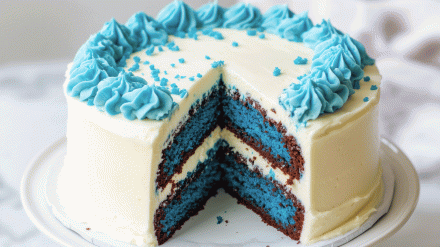Background
Masterpiece Cakeshop is a bakery in Lakewood, Colorado, offering a range of baked goods, including custom-designed cakes for weddings and other events.
Key facts:
- Owner: Jack Phillips, an expert baker and devout Christian.
- Beliefs: Phillips seeks to honor God through his work. He believes marriage should only be between a man and a woman.
- Conflict: Creating a cake for a same-sex wedding would violate Phillips’ religious beliefs.
In 2012, Charlie Craig and Dave Mullins visited Masterpiece Cakeshop to order a wedding cake for their upcoming celebration.
At that time, Colorado did not recognize same-sex marriages.
Phillips declined to make a wedding cake for them, citing:
- His religious opposition to same-sex marriage.
- The fact that Colorado law did not recognize such marriages.
He offered to sell them other baked goods, such as birthday cakes and cookies.
Colorado’s Anti-Discrimination Act (CADA)
The Colorado Anti-Discrimination Act (CADA) prohibits discrimination by places of public accommodation based on:
- Disability
- Race
- Creed
- Color
- Sex
- Sexual orientation
- Marital status
- National origin
- Ancestry
Key points:
- Public accommodation definition: Broadly includes businesses open to the public but excludes churches and religious venues.
- Enforcement: Complaints are first investigated by the Colorado Civil Rights Division. If probable cause is found, cases proceed to the Colorado Civil Rights Commission and possibly an Administrative Law Judge (ALJ).
Shortly after their visit, Craig and Mullins filed a complaint against Phillips.
Investigation and State Rulings
Findings:
- Phillips had previously declined services to other same-sex couples.
- His refusal was based on religious beliefs and the then-illegal status of same-sex marriage in Colorado.
Administrative Law Judge (ALJ) ruling:
- Phillips’ shop was a place of public accommodation.
- His refusal constituted discrimination based on sexual orientation.
Free Exercise Argument:
- Phillips argued that CADA violated his First Amendment religious freedom rights.
- The ALJ disagreed, citing Employment Division v. Smith (1990), which upheld neutral laws of general applicability even when they incidentally burden religion.
Result:
- The Commission affirmed the ALJ’s decision.
- Phillips was ordered to cease discrimination, undergo compliance training, and submit quarterly compliance reports for two years.
Phillips appealed to the Colorado Court of Appeals, which upheld the Commission’s ruling. He then appealed to the U.S. Supreme Court.
Supreme Court’s Decision: Masterpiece Cakeshop, Ltd. v. Colorado Civil Rights Commission
The U.S. Supreme Court ruled in 2018 in favor of Phillips, but on narrow grounds:
Key points:
- The Court emphasized the need for neutral and respectful treatment of religious objections.
- The Colorado Civil Rights Commission showed impermissible hostility toward Phillips’ religious beliefs.
Evidence of hostility:
- A commissioner compared religious defenses to those used for slavery and the Holocaust.
- No objection to these comments was raised by other commissioners or by state courts during appeals.
Disparate treatment:
- Other bakers who refused to create cakes with anti-gay messages were not sanctioned.
- The Court found inconsistency in how religious conscience claims were handled.
Conclusion:
“The Commission’s treatment of Phillips’ case violated the state’s duty under the First Amendment not to show hostility toward religion.”
Thus, the Court set aside the Commission’s order.
Application of the Ruling for Churches and Business Owners
1. Relevance to Clergy
The Court noted:
Clergy cannot be compelled to officiate same-sex marriages if doing so would violate their religious beliefs.
This reinforces protections for religious leaders under the Free Exercise Clause.
2. Relevance to Churches
The Court did not directly address whether churches that rent their facilities for weddings qualify as public accommodations.
However, churches that rent to the general public may risk exposure to nondiscrimination laws unless clear religious exemptions apply.
3. Relevance to Business Owners with Religious Beliefs
The decision shows:
- Civil rights agencies must treat religious objections neutrally.
- Evidence of hostility (e.g., disparaging religious views) can invalidate enforcement actions.
Important:
Even with neutrality, religious objections will not always succeed.
The Court reaffirmed:
“Religious objections do not allow business owners to deny protected persons equal access to goods and services under neutral, generally applicable public accommodations laws.”
Related Cases
Florist Case: Arlene’s Flowers
In Washington State, florist Barronelle Stutzman declined to create floral arrangements for a same-sex wedding.
The Washington Supreme Court ruled against her, rejecting her religious liberty defense.
However, after the Masterpiece Cakeshop ruling, the U.S. Supreme Court:
- Vacated the state ruling.
- Ordered reconsideration in light of Masterpiece Cakeshop’s emphasis on religious neutrality.
Wedding Design Business: Brush & Nib Studio v. City of Phoenix
An Arizona appeals court upheld a city ordinance prohibiting discrimination by businesses based on sexual orientation.
The court found:
- Requiring businesses to serve same-sex couples did not substantially burden religious exercise.
- The government had a compelling interest in eradicating discrimination.
Court’s conclusion:
Religious beliefs do not excuse business owners from complying with nondiscrimination laws, unless enforcement shows bias against religion.
Final Takeaways for Churches and Faith-Based Organizations
- Hostility matters: Neutral, respectful treatment of religious claims is mandatory.
- Title matters less: Courts focus on how laws are applied, not just the language of the law itself.
- Public accommodation risk: Churches that open facilities to the public must navigate nondiscrimination laws carefully.
Resource:
For more guidance, see the downloadable resource Church Issues: Same-Sex Marriage and Gender Identity available on CLTStore.com.

